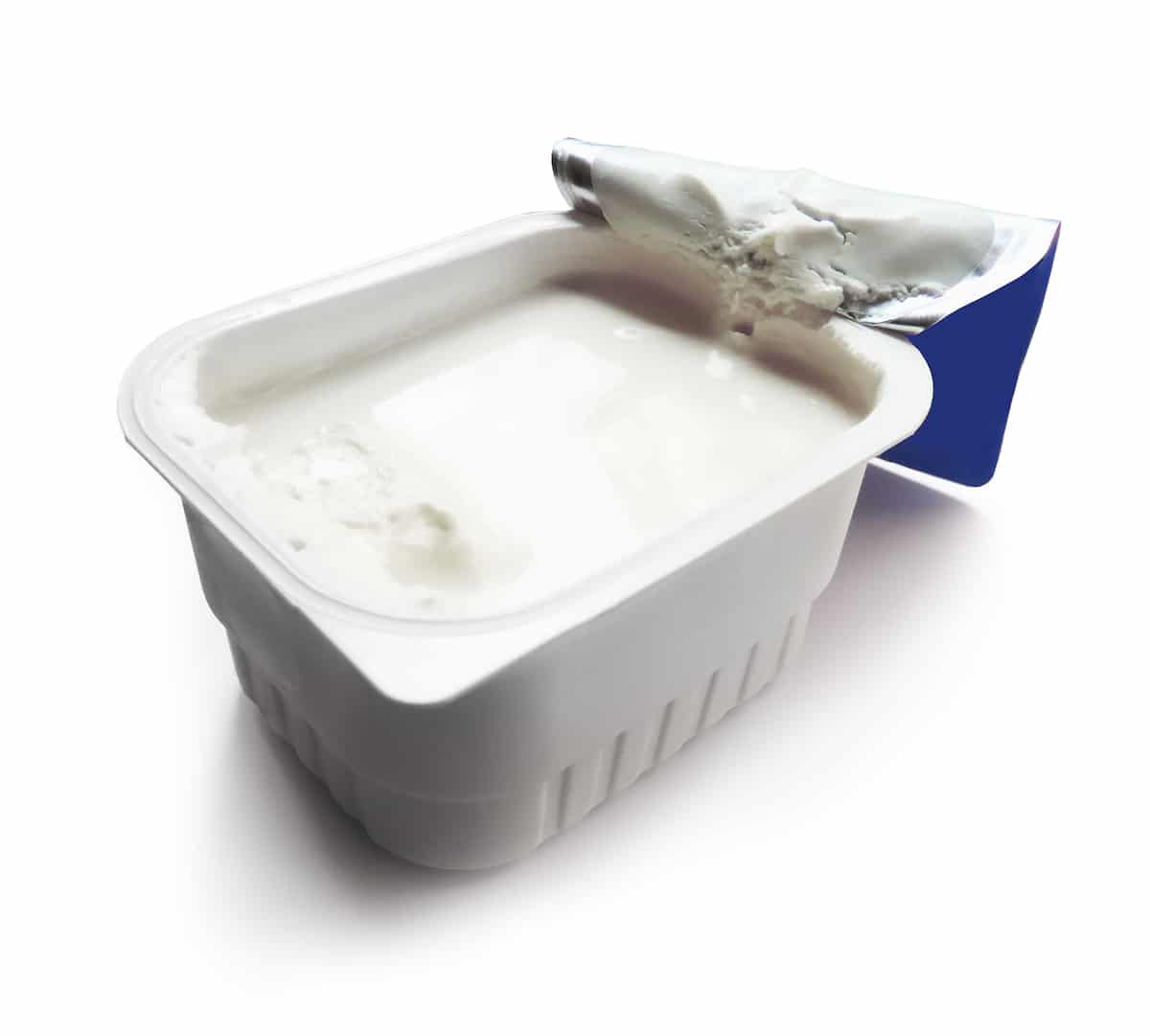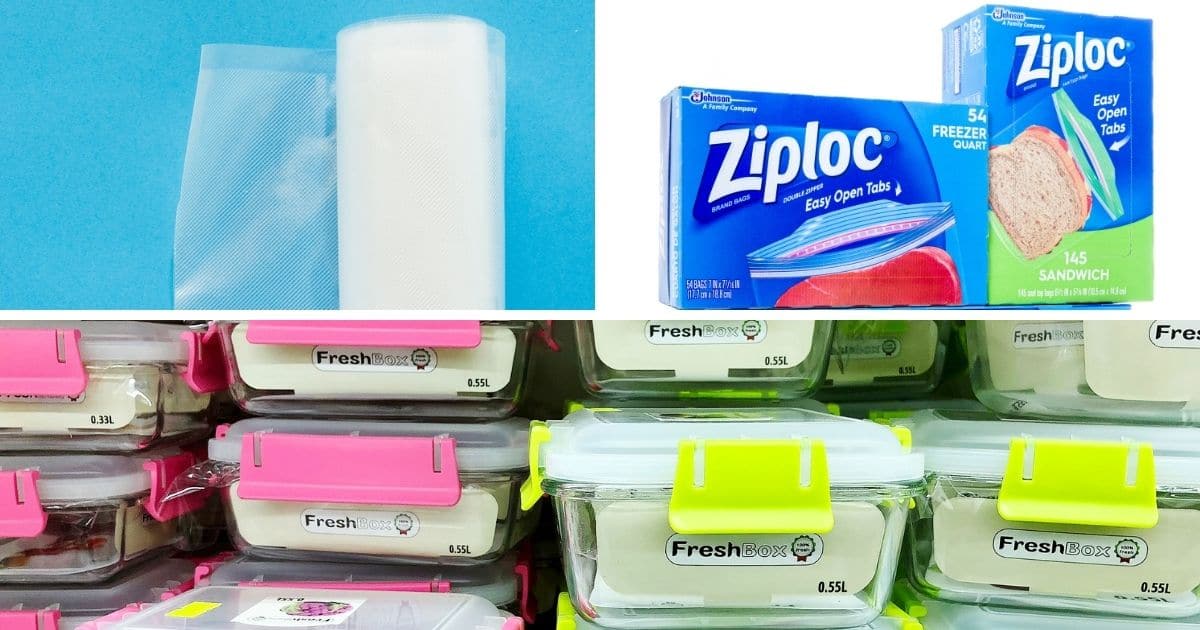Can You Freeze Cream Cheese? Here’s How to Do It Right
Like Diane, I love having cream cheese at home and use it in almost everything, bagels, soups, cakes, and even pasta sauces!
However, like other dairy-infused ingredients, cream cheese does not have a great shelf life and begins to change its taste if left in the refrigerator for too long.
If you’re like me, I’m sure you have used it enough to have been left with half blocks of the stuff, after including it in your recipes or using it as a spread.
Nothing beats the flavor of cream cheese on fresh bread with some tomatoes and salami
Though you may love cream cheese, sometimes you cannot use what you have in one go for a single meal or recipe. As a result, you are left with an opened cream cheese block that may not be needed anytime soon.
This got me thinking one day; can you freeze cream cheese? Yes, you can freeze cream cheese for up to 2 months. However, the cheese will suffer some texture and consistency changes, making it unsuitable to use as a spread. Instead, it can be used in a recipe in baked foods and desserts.
Are you wondering how to make your defrosted cheese looking creamy again? or it may be that you are wondering how to freeze it to ensure it does not suffer from freezer burn. Keep on reading as we answer these and some other questions you may have!
Can You Freeze Cream Cheese?

Yes, you can freeze cream cheese. However, a lot of changes happen when you put your cream cheese in the freezer. One example may be that your cream cheese changes in texture and consistency.
Frozen cream cheese will feel grainy and crumbly compared to unfrozen cream cheese, which is usually more smooth and dense. The reason for the texture difference can be traced to the water content of the cream cheese itself.
Unlike other cheeses, cream cheese includes cream, which is where the name “cream cheese” came from. The addition of cream makes cream cheese softer and, some would say, tastier than other types of cheeses.
When you freeze cream cheese, the water content from the cream freezes into ice crystals. This makes frozen cream cheese grainy, gritty and crumbly. Once thawed, the ice crystals from the cream’s water content melt back into the water, but cannot properly bond with the cheese, as it had before freezing.
Hence, frozen cream cheese becomes unsuitable for use as a spread. Instead, it can be used in a recipe in baked foods and desserts.
Can You Freeze Cream Cheese After Opening?

Yes, you can freeze cream cheese after opening it.
However, due to texture changes, the cheese will be unsuitable to use as a spread. So, if you plan to use your cream cheese as a traditional spread for bagels, crackers, or any other food product, you may want to consider keeping it in the refrigerator first.
Cream cheese will last for one to two weeks in the refrigerator. If you plan to use it within this period, the refrigerator is the best place for storage.
However, if you do not plan to use your cream cheese within the two-week period, and are okay with not being able to use frozen cream cheese as a spread for bread and other food items, it’s okay to freeze your opened cream cheese.
How Do You Store Cream Cheese In The Freezer?

Since we have established that it is perfectly okay to freeze cream cheese to preserve and extend its shelf life, we move on to how to store cream cheese in the freezer. How cream cheese is stored in the freezer is based on whether it is opened or not. Below, we will take a closer look at both situations.
Opened cream cheese can be stored in the freezer but how it is stored is different from how a block of unopened cream cheese is stored.
Putting an opened block of cream cheese directly into the freezer puts it at risk of freezer burn. Any product exposed to air and stored directly in the freezer may experience freezer burn, and cream cheese is no exception.
To ensure this does not happen follow the steps below:
Step 1
Transfer opened cream cheese from its foil to a sealable container, freezer bag, or food saver bag.
Step 2
Wrap the container with a cling wrap for added protection if you choose to use a sealable container instead.
Step 3
Label the container with the date the cream cheese went into the freezer.
This will ensure you know when to use your cream cheese by.
On the other hand, unopened cream cheese can be stored in the freezer directly in its package. The foil and cardboard package is enough to keep your cream cheese protected from freezer burn.
While the original package is enough, some people still prefer to toss blocks of unopened cream cheese in a plastic wrap or freezer bag for adequate protection. This is also a great way to freeze unopened cream cheese if you don’t want to freeze your cream cheese in its original packaging.
How Long Can You Freeze Cream Cheese?

Cream cheese can be stored opened, and unopened, in the freezer for up to 2 months. However, the spreadable cream cheese, sold in plastic tubs, is not recommended for freezing
Do note that the spreadable cream cheese in plastic tubs can last up to two weeks in the refrigerator once opened, and up to a month if unopened.
It is also important to remember that any cream cheese left at room temperature for more than two hours should be disposed of immediately. If you notice a color change, odd odor and/or a strange flavor in your cream cheese, do not freeze it, but discard the package instead.
This is because room temperature can present optimal conditions for the natural bacteria in the cheese to grow at dangerous levels, potentially increasing the risk of food poisoning!
How Do You Make Frozen Cream Cheese Creamy Again?
As mentioned earlier, frozen cream cheese loses its smooth, creamy, and dense texture to become grainy and crumbly. As a result, frozen cream cheese becomes unsuitable for use as a spread.
However, there are several methods you can use to make grainy and crumbly frozen cream cheese smooth and creamy again. While these won’t get you the perfectly creamy texture of unfrozen cream cheese, they will integrate the cream cheese’s ingredients to get you something close.
Whisk

Whisking is a simple method to make your frozen cream cheese creamy again. First, thaw your frozen cream cheese. Then, use a whisk to mix the thawed cream cheese together. Whisking will improve the consistency of the thawed cream cheese.
The Microwave Method

The other method of getting your frozen cream cheese close to its smooth texture and creamy consistency is the microwave.
Although the microwave method requires you to put some extra effort to get your frozen cream cheese back to its creamy consistency, it is an effective method that will make your frozen cream cheese less crumbly and grainy.
Below, are a list of steps:
Step 1
Start by thawing the frozen cream cheese. You can do this by removing it from the freezer and transferring it to the refrigerator for twenty-four hours.
Step 2
Once the frozen cream cheese is defrosted, remove it from its current package and place it into a bowl that’s safe for use in the microwave.
Step 3
Turn on the microwave and microwave the cream cheese for about 10 seconds. Please note, it is important to take the cream cheese out of its original foil packaging before microwaving, or you may start a fire as foil is not microwave safe.
Step 4
Stir the contents, collecting all of the cream cheese from the side of the bowl as well.
Step 5
There should be an improvement in consistency. Repeat the process until you arrive at a consistency you prefer.
The Stove Method

The stove method is an alternative way of improving frozen cream cheese consistency for people who do not like using the microwave for food items. This method also gives you better heat and process control.
To use the stove method, start by thawing your frozen cream cheese in the refrigerator. Once the cream cheese is defrosted completely, you can begin the following steps.
Step 1
Fill a medium-sized saucepan with water and place it on the stovetop.
Step 2
On top of the saucepan, place a bowl that is smaller than the saucepan. Make sure that the bowl doesn’t reach the bottom of the water or the saucepan. This will prevent direct heat to the cheese. If you have a double boiler, this would also work.
Step 3
Place your thawed cream cheese into the smaller bowl.
Step 4
Stir the cream cheese gently until smooth or to your preferred consistency.
How Do You Defrost Cream Cheese?

The best way to defrost frozen cream cheese is to transfer it from the freezer to the refrigerator, and leave it there for twenty-four hours, or until it is completely defrosted.
If you do not have the time to wait for the cream cheese to defrost in the refrigerator, you can use cool water to speed up the process. To thaw the cream cheese using this method, follow the steps below.
Step 1
Place your cream cheese in a leak-proof bag or container. If you opted to freeze your cheese out of its original package, then your bag/container is likely already waterproof.
Step 2
Fill a bowl with cold water.
Step 3
Place the freezer bag/ziplock bag in the bowl of water. This water should be changed every 30 minutes to ensure it remains cold. Warm water is likely to allow bacteria to grow.
Step 4
Continue the process until the frozen cream cheese is completely defrosted.
To allow the cream cheese to evenly thaw on all sides, flip it over, as the water is being changed.
Another way to ensure even thawing is to weigh the cream cheese down in the water to prevent it from floating. DO make sure the container/bag do not have any leaks or your cheese will get soaking wet and it will be destroyed!
How To Soften Cream Cheese?

Besides thawing frozen cream cheese, sometimes your cream cheese may need to be softened before using it in your recipes.
Cold cream cheese might turn out lumpy in some recipes when beaten in its cold state. Hence, the need to soften before use.
The first, and direct method, of softening cream cheese is to leave it out on the counter for about 15 minutes. This gives the cream cheese time to adjust to the room temperature and ultimately become soft.
If you do not have the luxury of time, another method is to use a microwave. Remove the foil from the block of cream cheese and place it on a microwavable-safe plate or in a bowl.
Set the microwave to high and turn it on for about fifteen to twenty seconds. Next, use your fingers to test the cream cheese. It should not feel hot, but you should feel the cream cheese begin to soften. If you want it to be softer, you can repeat the process until it is to your liking (Source: The Spruce Eats).
Is Cream Cheese Still Good After Being Frozen?

Yes, cream cheese remains good after freezing.
As mentioned in other sections above, the only inhibition with frozen cream cheese is that the consistency and texture changes from being creamy and smooth to crumbly, gritty, and grainy.
While this may seem like a problem, as it means you cannot use frozen cream cheese as a spread, there is a workaround in the “How Do You Make Frozen Cream Cheese Creamy Again?” section, above. In this section, we discussed three methods by which the frozen cream cheese could be thawed. The result may not be as perfect as unfrozen cream cheese, but it would get you close.
If your cream cheese changes to a yellow color, have a foul odor, or develops mold; throw it immediately away.
Does Philadelphia Cream Cheese Freeze Well?

Yes, Philadelphia cream cheese freezes as well as any other brand.
Philadelphia Cream Cheese is one of the most well-known cream cheese brands. Like all other cream cheese’s, it can be preserved, and its shelf life extended by storing it in the freezer.
How Long Can You Freeze Philadelphia Cream Cheese?

Philadelphia cheese can be frozen for up to 2 months without changing its taste. Beyond that date, the taste of the cheese will be compromised!
Uses For Frozen Cream Cheese?
You have frozen cream cheese, and now it is time to use them again. Know that thawed cream cheese won’t be great to use as a spread for bagels, crackers, or other meals. Not that it poses any risks to your health, but the change in texture and consistency make spreading unenjoyable.
If you have the time, you can try any of the methods listed in the “How Do You Make Frozen Cream Cheese Creamy Again?” section. While these methods won’t get you the perfect texture and consistency, they will bring you close and make your thawed frozen cream smooth enough for use as a spread.
Thawed cream cheese works great in baked recipes and desserts. This is because the change in consistency and texture is barely noticeable when mixed with other ingredients, and will not mar the recipe or dish.
Here are some recipes using cream cheese that will impress your family:
- No-Bake Lemon Blueberry Cheesecake
- Pecan Pie Cheesecake
- Strawberry Cheesecake Pancakes
- Salted Caramel Cheesecake Bars
- Puff Pastry With Cheesecake and Cherry
- Halloween Witch Finger Cookies And Red Velvet Hot Chocolate
- Strawberry Bars Recipe With A Delicious Mousse
- No-Bake Fruit Pizza
Conclusion
Whether you jumped on a sale and grabbed all of the boxes of cream cheese you could find, or you just love to have them around to use in your next exciting recipe, we have extensively discussed how to preserve and extend the shelf life of cream cheese via freezing.
From what happens to cream cheese when you freeze it, how you freeze opened or unopened cream cheese, how long frozen cream cheese will last, and even how to make thawed cream cheese, creamy again, we have empowered you with all of the essential information you need to freeze your cream cheese successfully.
So, from today on, the short shelf life of cream cheese will no longer hamper your love for cream cheese and its consumption. After successfully reading this piece, you have become a professional when it comes to freezing cream cheese.
